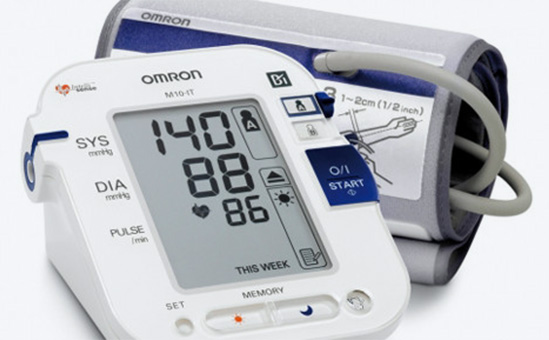This blog post offers advice on some of the key areas to consider when planning and managing ancillary supply for your clinical trial, covering factors such as:
- Sourcing the correct supplies with adequate lead time to meet your SIV dates
- Supply to international and multi-centre clinical trials
- Managing stock and expiry dates
- Responding to regulation changes
Understanding the recent and upcoming changes in the clinical trial landscape, and how these may affect your supply chain, can help you to improve your clinical trials.
For example, organisations that use the Good Manufacturing Practice (GMP) system as a guide for managing their logistics should know that annexe 15 of the GMP now requires more logistical complexity for shipping ancillaries to multiple countries1. The GMP includes updated requirements for stock packaging, transportation, storage and stock disposal for each of these sites.
In addition, new EU Clinical Trials Regulations are anticipated to go into effect in October 20182. These regulations will be a significant improvement on the existing CT Directive, streamlining the approval process for studies that span multiple member states. However, to optimise the benefits of these new regulations, supply chain managers will also need to understand all related uncertainties, and examine the best practices to ensure EU industry compliance.
For more information on the proposed update to EU regulations and how your clinical trials in Europe will be affected, read our recent article on the topic.
Balancing your procurement options
Evaluating which clinical ancillaries to use and whether to purchase or hire these supplies is a major decision. Using the latest, high-quality clinical ancillaries can often help clinical teams to improve diagnostic testing, save time and make on-site treatment decisions. However, your decision should also be based on the most appropriate pricing model for your study. These ancillaries may include:
- Airway management
- Blood collection receptacles
- Catheters and suction devices
- Examination gloves
- Dressings and bandages
- Personal protective equipment (PPE)
- IV solutions
- Syringes and needles
- Pressure care
- Sterilisation ancillaries
Supply chain challenges
Managing your clinical ancillaries stock also means keeping pace with the needs of your clinical team, at each stage of your clinical trial. For example, any changes in the timescales of your clinical study can affect your current plans for timing, shipping and restocking at various sites. Just one small delay at any stage can cause a domino effect on the entire study. Some of the key steps in managing the inventory of your ancillaries include:
- Sourcing the right ancillaries and equipment for each trial with adequate lead time
- Initial preparation activities to meet the site initiation visit (SIV) date
- Supplying the ancillaries efficiently and cost-effectively to each site
- Managing the correct disposal of all ancillaries, during and after the trial
- Restocking ancillaries to avoid stock shortfall and to optimise expiration dates
Multiple site risks
The increasing use of multiple and international sites can pose particular risks for supply chain managers. In these cases, it is vital to use the correct international ordering, and comply with country-specific product licenses to import or export material. From a servicing perspective, multilingual account co-ordination and multilingual technical support may be needed to deal with global distribution.
Supply chain solutions
In order to manage the complexity of ancillary supply, logistics, restocking and expiration management, a combination of internal expertise and external support is highly recommended. Ideally, study managers and project managers should be free to focus on the execution of the clinical study, while an expert partner manages the complexity around ancillary supply and logistics.
Some of the considerations to minimise barriers or delays in the area of ancillary supply include the following. Many of these considerations can be best managed through a combination of study and project manager oversight, working in close partnership with an experienced equipment supply partner.
- Think ahead to ensure there is enough planning and preparation time to source and optimise your supply chain methodology; especially on large, global studies.
- Allow sufficient lead time to source and deliver stock to each regional site. If stocks are in short supply in certain countries, and need to be shipped from other locations, then this may extend your standard lead time.
- Know the rules for country-specific regulations and import licenses to avoid any delays in delivering the right stock to the right site to meet your SIV dates.
- Maintain constant communication with your supply team and clinical team to stay aware of any changes in study timelines, patient enrolment or regional site needs.
- Consider inventory management tools such as clinical supply planning technology that can help you to forecast equipment supplies and keep track of impending stock shortages and oversupplies.
- Monitor this data on a daily basis to spot potential problem areas and manage or avoid these before they hit the supply chain.
- Keep abreast of any paperwork, particularly import licenses, shipping, labelling, and stock expiry dates to prevent a shortage of ancillaries at any time during the trial.
- Avoid unnecessary risks, and don’t assume that the specific stock you need will automatically be available to reorder from your supplier during the trial.
- Expect the unexpected and factor this into the supply plan, in the event of a strike, hurricane, flood or other emergency that could prevent clinical trial stock from reaching sites.
- Meet your SIV dates by working with a full-service ancillaries partner to be confident that you can deliver your stock on time to each global site. Ideally, any ancillaries you order should include stock with latest possible expiration date. This can extend the time you have to use these products. A full-service ancillaries partner can also help you to match the clinical requirements for each country, including requirements around disposal of used items.
Finally, remember that patients come first. Managing the challenges involved in resourcing and supplying ancillaries and medical equipment for your clinical trial will ideally contribute to a new therapy to change the lives of patients.
References
- Gov.uk. 2014. Good manufacturing practice and good distribution practice. [ONLINE] Available at:https://www.gov.uk/guidance/good-manufacturing-practice-and-good-distribution-practice. [Accessed 21 September 2016].
- European Commission. 2016. Clinical trials - Regulation EU No 536/2014. [ONLINE] Available at:http://ec.europa.eu/health/human-use/clinical-trials/regulation/index_en.htm. [Accessed 20 September 2016].


